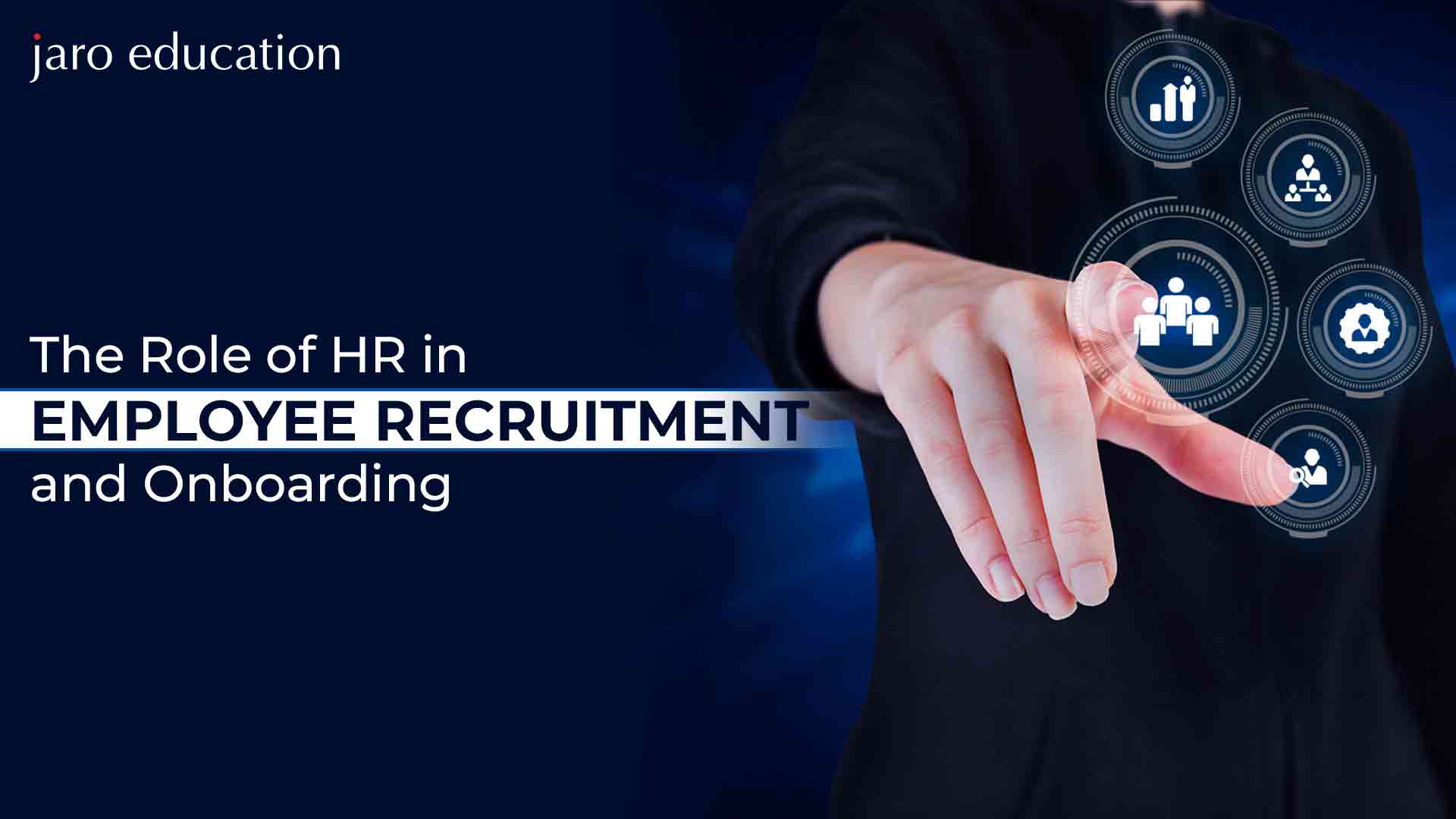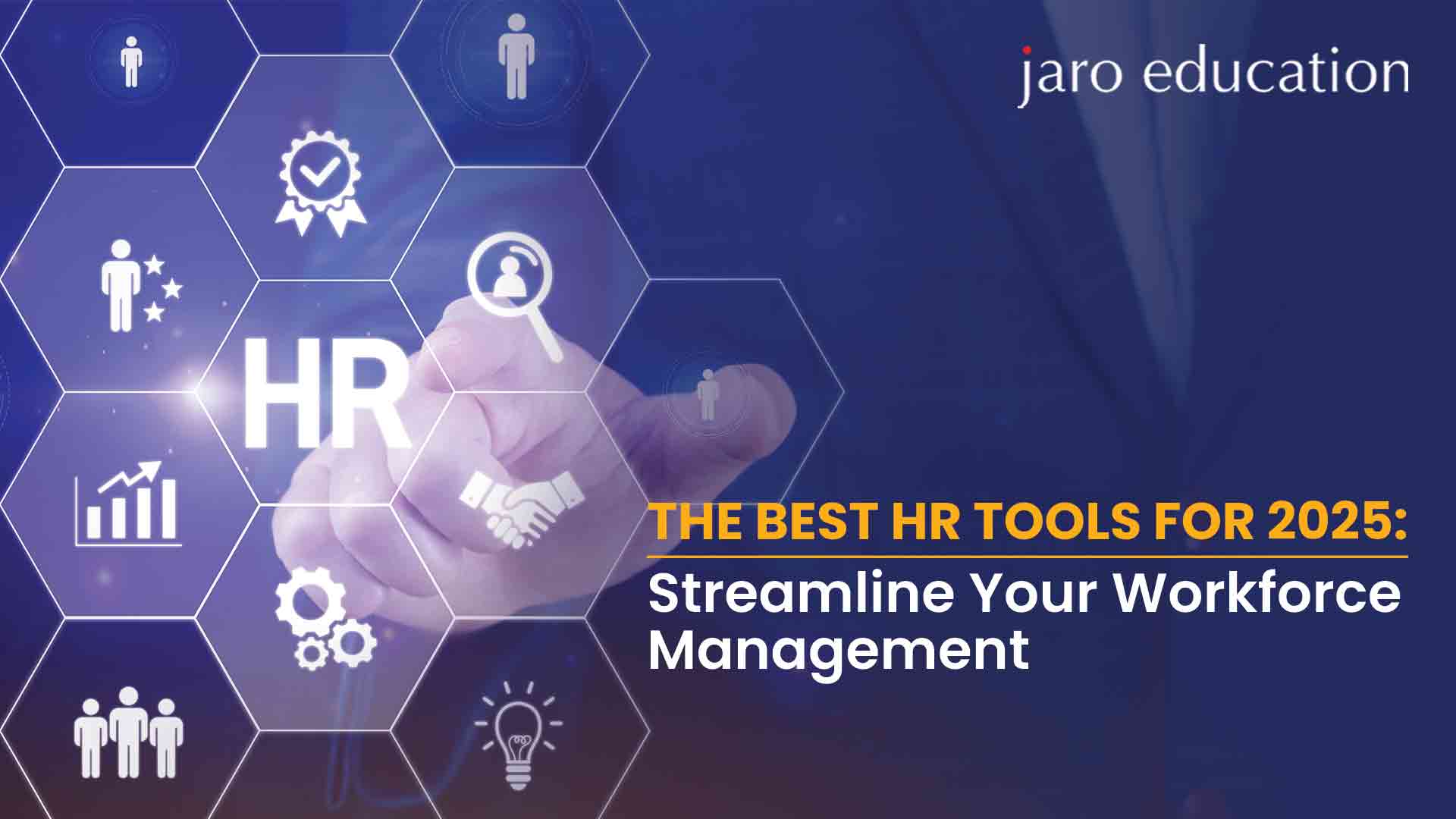The Role of HR in Employee Recruitment and Onboarding

In a world where 74% of professionals are proactively seeking to upskill themselves for future employability, according to PWC’s report titled “Workforce of the Future,” the role of HR in employee recruitment and onboarding has never been more critical.
Employee recruitment is the first step towards building a cohesive team, and effective onboarding is essential for integrating fresh talent into your organisation. This process isn’t just about paperwork; it’s about introducing new hires to your company’s values, vision, culture, and structure.
However, the HR profession extends far beyond recruitment and onboarding. Aspiring HR professionals can explore broader career prospects. To gain expertise in HR principles and concepts, consider IIT Delhi’s Executive Programme in Human Resource Management, which covers organisational behaviour, leadership development, data analytics, and strategic HRM.
In the current landscape, data-driven HR is a key driver of success. High-performing organisations understand the significance of agility and skill readiness in responding to business uncertainties. HR professionals are embracing data to fuel workforce analytics, shaping a new era of HR strategy. This transformation empowers HR leaders to make data-driven decisions, enhance talent acquisition, foster employee growth, and align HR initiatives with organisational objectives, ultimately ensuring sustainable success in a rapidly changing business environment. Join the HR data revolution with IIT Delhi’s Executive Programme in Human Resource Management, available via Jaro Education.
Table of Contents
HR’s responsibility in employee onboarding
Human Resources is in charge of the recruitment process. Their responsibilities include conducting interviews, screening candidates, posting job openings and extending employment offers. The recruiting manager is responsible for making the final hiring decision. One of the most critical roles of the HR department is to ensure that new hires are appropriately recruited and onboarded. Onboarding is the process of adapting new workers to their positions, and it is critical for assisting them in becoming effective team members.
On the contrary, recruitment is a way of identifying and recruiting competent individuals. Both recruiting and onboarding are critical to ensuring that a firm has a strong and skilled staff, and they are frequently viewed as Human Resources responsibilities.

Train managers to hire new talents
One of the most important responsibilities of HR is to train managers on how to attract talent. It not only helps the organisation recruit highly valuable people, but it also helps to reduce management churn. The recruiting process is continuously changing, and managers may find it challenging to stay up with the current trends. HR may assist managers in implementing the most successful techniques of talent recruiting by giving training on how to do so.
Bridging skills and competencies gaps
The HR department of an organisation is in charge of identifying skills and competencies gaps. It is their responsibility to hire qualified candidates to fill such gaps. It is one of the primary tasks of an HR person in employee recruitment and onboarding. To accomplish so, they must first define the exact skills and abilities required, followed by the identification of people who possess those skills and competencies. This can be accomplished through a variety of ways that include reference checks, job ads and interviews. After identifying the ideal individuals, HR must work with them, ensuring that they are adequately prepared and equipped to address the skills and competencies gap. Recruiting capable talents can also be done through continuing education courses, mentorship programmes and on-the-job training.
Managing and boosting the recruitment process
It is the responsibility of the HR department to manage and improve the recruitment process to find the best individuals available for open positions. In recent years, Human Resources has made various modifications to the recruitment process to make it more efficient. They have integrated different hiring goals and objectives to demonstrate the significance of the process. The most noticeable improvement in the recruitment process has to be via social media. By using various social media platforms, HR can locate and get candidates for available positions is known as social media recruiting.
HR departments have discovered that using social media to uncover worthy applicants is an effective method. It gives companies access to a wider community of possible employees and makes it simple for candidates to learn about vacant opportunities. Also, social media recruiting allows organisations to target certain demographics that help them locate the best candidates for available positions.
Maintaining recruitment compliance
Any organisation’s success is contingent on its recruitment process. It not only helps to find and recruit top contenders but also creates a productive and enjoyable work atmosphere. Human Resources is critical in ensuring the recruiting process is legal and safe. This includes protection against discrimination and harassment. It may assist in guaranteeing that all applicants are treated fairly by developing and implementing fair and consistent guidelines and processes. Furthermore, HR may assist in screening candidates and weeding out those who may constitute a risk to the organisation. Thus, HR plays a key role in ensuring that the recruitment and onboarding process is secure and compliant. The individual or department can also assure the new employees that the process is efficient, fair and in accordance with all applicable rules and regulations by collaborating directly with recruitment.
Developing a strategic workforce plan
Another important role of HR is to maintain a workforce strategy, which includes hiring the right amount of people with the relevant capabilities to accomplish the organisation’s strategic goals. In collaboration with the senior management, a workforce plan is usually created that considers the organisation’s existing and future labour requirements. Furthermore, HR responsibilities include continuously monitoring and revising the personnel strategy, making sure that it remains aligned with the changing demands of the company. The Human Resources department also connects with other departments to make certain that everyone is aware of the workforce strategy and how it will affect their operations.
Onboarding role
HR has often been held accountable for onboarding and employee recruitment since they are responsible for managing a company’s talent pipeline. Human Resources may assist in guaranteeing that new recruits are set up for achievement by assuming responsibility for these processes. Presenting new employees with relevant information and documentation, orienting new hires and assessing them in adjusting to their new roles are all part of the onboarding tasks. The HR department normally performs the onboarding tasks. However, other team members and managers can also get involved in the process. Managers play a critical role in understanding the workforce’s needs and assisting in the evaluation of prospects when it comes to recruiting. HR can also ask managers to be a part of the interview process, and ultimately, it is the recruiting manager who decides whom to hire.
Companies can find eligible candidates using a variety of hiring methods. Employee referral programmes, job boards, recruiting agencies and social media are the top ways of finding new talents. Depending on the company and the open position, the recruitment process also varies. When it comes to recruiting, HR is in charge of overseeing this process.
How do successful onboarding processes improve company culture?
Through onboarding processes, new employees are prepared for their new positions and settings. A carefully planned onboarding process will be appreciated by a new hire just like an anxious student will appreciate a warm welcome on his first day of school. Working with a fresh recruit is the start of a productive and fruitful collaboration during the onboarding process. New recruits with a pleasant onboarding process are more likely to stay in the company, like their roles, and be more productive. In the long term, a strong and pleasant business culture results from early and constant attention to its employees’ needs.
Conclusion
The recruitment process these days has become simple as HR departments of organisations are employing modern methods. They often collaborate with managers of different departments to participate in the onboarding process so that efficient talents can be added to the workforce. However, without significant skills, successful onboarding cannot happen.
Hence, IIT Delhi is providing an Executive Programme in Human Resource Management. This is an 8-month programme that would help professionals gain insights into legal and ethical aspects of hiring, data analytics and expertise in talent management. Join the course without hampering your professional life, and be prepared to reach the heights of success in the near future.





